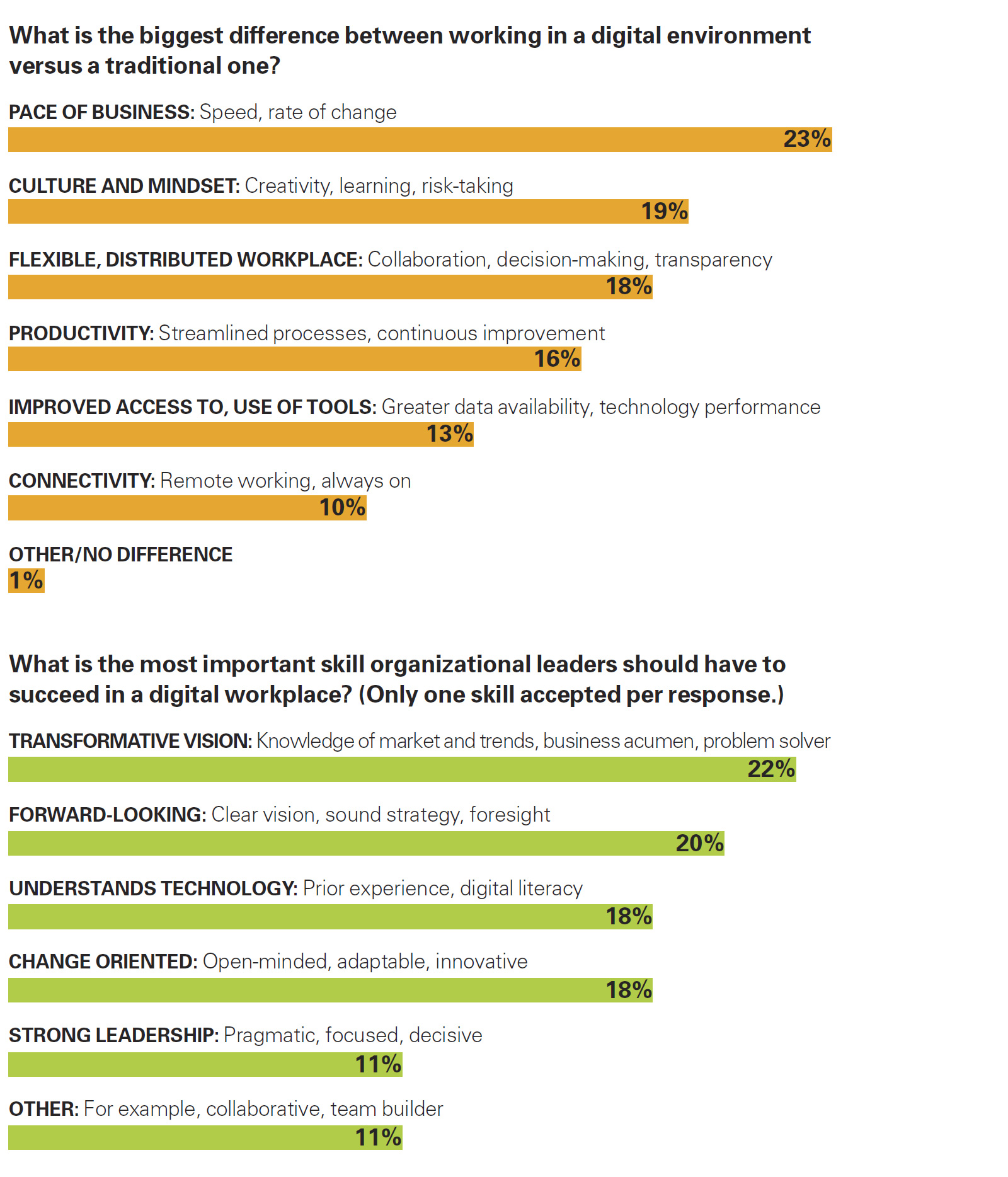But the fundamental human and organizational imperatives based on knowledge, respect and strategic focus remain essential for achieving optimal outcomes. JL
Jim Hamill reports in Leading Digital:
Digital leadership is no longer enough. There is growing recognition that digital supported transformation is less about technology and more about people, organisation and culture. Technology is just the facilitator. Many current digital transformation programs fail because of their over-reliance on the technology aspect and relative neglect of people. The biggest challenges facing executives as a result of digital disruption are the increased pace of doing business, the shift in organizational culture and the need for a flexible and distributed workplace, and greater expectations of productivity.
We have been arguing for four years now that a new breed of senior executive is required, Digital Business Leaders - executives who can combine high level business knowledge, experience and understanding with the ability to develop Digital Transformation Strategies fully aligned with and supportive of agreed business goals and objectives. Executives with the personal skills and confidence to drive organisational change.
But how different is this new breed of leader? Does the leadership handbook need to be completely rewritten for the digital age? Or do the essentials of leadership stay the same even in an era of rapid digital disruption?
A joint research project between MITSloan Management Review and Deloitte sheds some useful insight on how business and leadership are changing as a result of digital disruption.
The main conclusion is that many core leadership skills remain the same. However, there are particular demands emerging from digital disruption which require a range of additional skills.
Leaders need to adapt or augment some of their core skills to navigate the digital world. Effective leadership in a digital environment requires a transformative vision and forward-looking perspective, digital literacy and adaptability. While these may be considered as being core competencies of any leader, they take on new significance in an era of disruptive change.
Figure 1 Digital Challenges and Digital Leadership
What Stays the Same
Fundamental leadership skills that remain the same in a digital era include:
Developing the Right Muscles, Mindsets, and Mettle
- Articulating the value that change will bring and investing accordingly.
- Owning the transformation.
- Equipping employees to succeed.
For successful digital transformation to take place, the right skills and management talent are required at all levels within an organisation.
The paper provides the following recommendations:
- Hire digital leaders to get the ball rolling.
- Ensure the most senior people lead digital change.
- Create an environment where new leaders can step up.
- Cultivate a culture of experimentation.
- Regularly refresh your senior team’s digital literacy through ongoing continuing education.
- There’s never enough digital leadership - 68% of respondents agreed that their organisation needs to find new leaders to succeed in a digital era. However, there are simply not enough digital leaders who can meet the challenge. Digitally maturing companies are doing something to address the problem - see Figure 2 below - with two-thirds of respondents from digitally mature companies stating that they are doing so compared to only 33% of developing-stage companies and 13% of early-stage companies (defined as the company's level of digital maturity).
As we move from the WHY to the HOW of transformation, there is growing recognition that digital supported transformation is less about technology and more about people, organisation and culture. Technology is just the facilitator. Many current digital transformation programmes will fail because of their over-reliance on the technology aspect and relative neglect of the people aspects.Digital leadership is no longer enough. Your organisation requires ‘leaders of change for the digital era’.




















0 comments:
Post a Comment